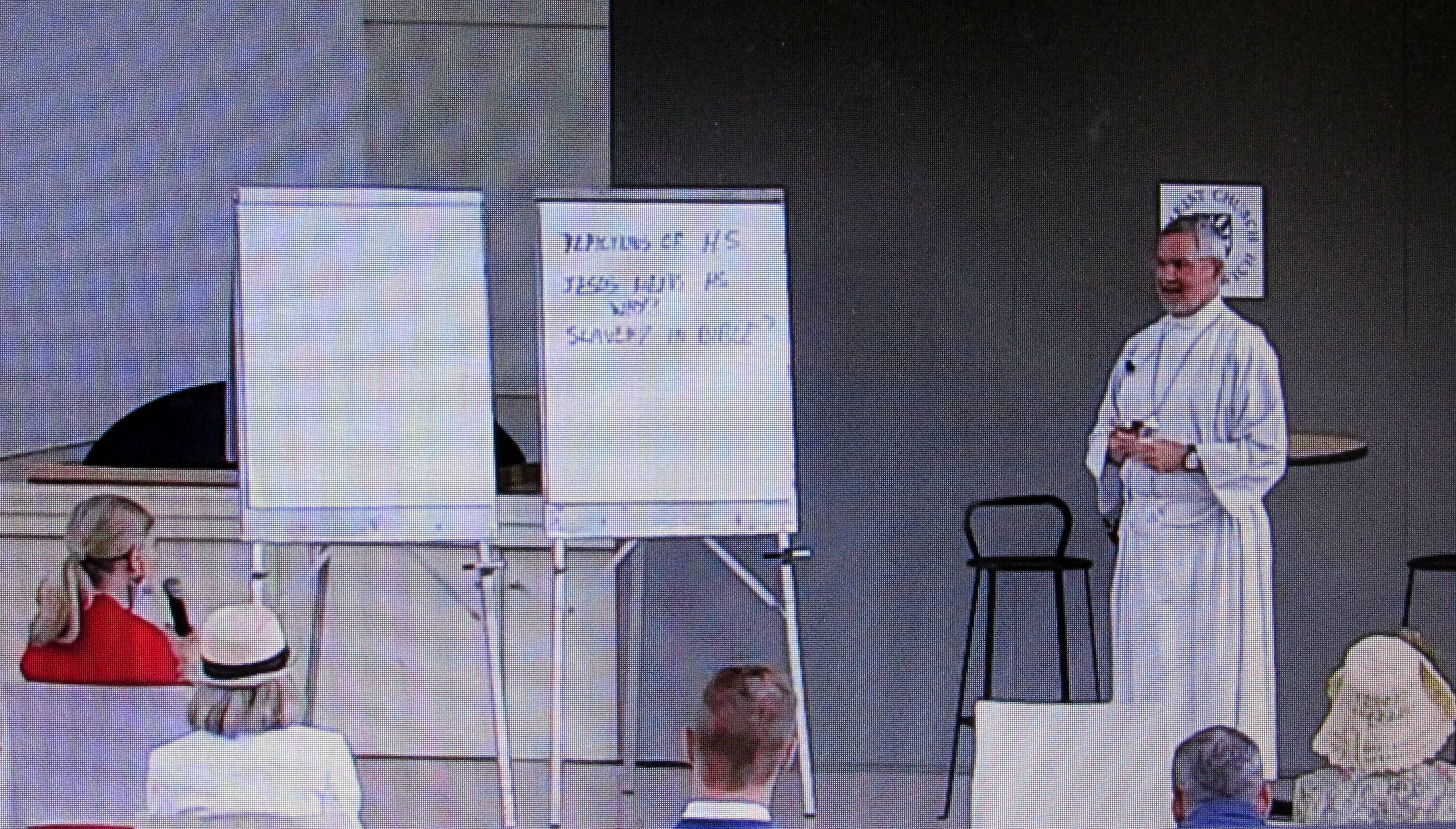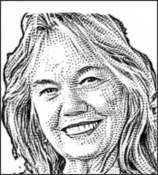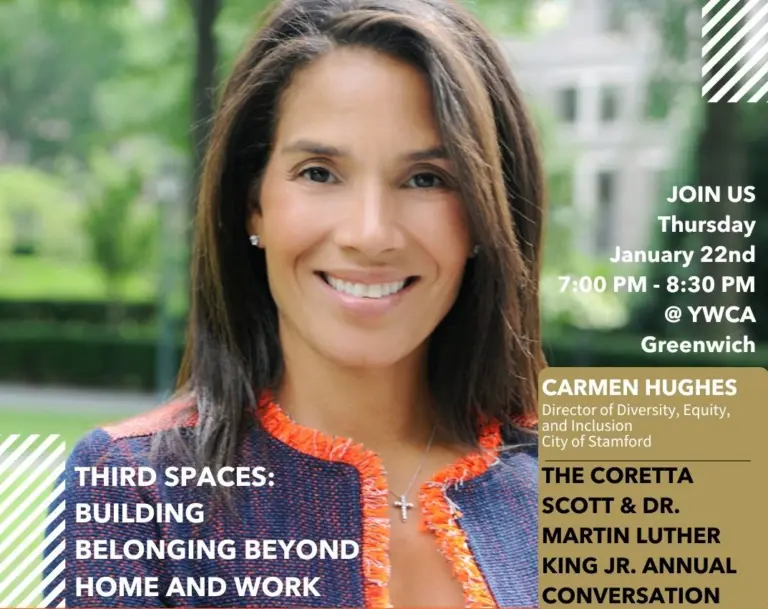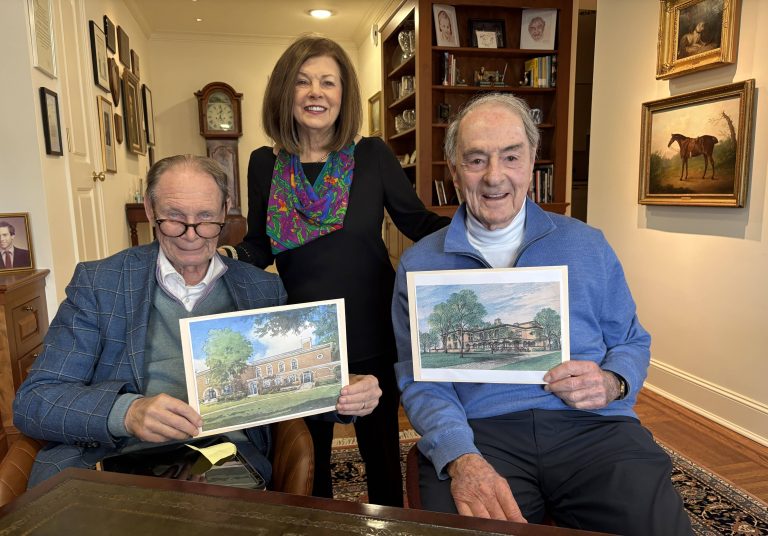
 By Anne Semmes
By Anne Semmes
The Rt. Rev. Ian T. Douglas, the Episcopal Bishop of Connecticut, was last Sunday’s guest speaker at the Christ Church Greenwich Forum, the first to be held in person, also on livestream. The Bishop, who is retiring next year after serving since 2010, chose a Q&A format. Following on are parishioner questions and excerpts from the Bishop’s answers.
Q: Please describe your depictions of the Holy Spirit?
A: God breathes life into us, and that’s the life of the Holy Spirit. But it’s also like tongues of fire – like that pointy [Bishop’s] hat, the mitre pointed to represent the tongues of fire…But the spirit can embody the feminine in God – often when I refer to the Holy Spirit I use feminine terms. So, I think that its whichever one actually draws your heart.
Q: Why does Jesus need the Holy Spirit?
A: I don’t think Jesus necessarily needs the Holy Spirit. Jesus is the Son of God, fully human and fully divine. He also is filled with the Holy Spirit in baptism, and that also prepares and opens the way for us similarly to be filled with the Holy Spirit. You are sealed by the Holy Spirit in baptism – and I love this – marked as Christ’s own forever.

Q: What are your thoughts on slavery in the Bible?
A: That’s a tough one. Clearly slavery existed in biblical times…Sadly, some of our forebears have used those passages to justify the enslavement of peoples, particularly here in the United States with the enslavement of peoples from Africa. That said, even if with slavery existing, that’s not a boundary for God’s love…slaves too have equal claim on the kingdom of God. We need to repent as the church for the way we have used scripture to marginalize and oppress people and slavery was one of them, but it’s not the only one. We’ve used [scripture] to marginalize lots of people based upon identities they inhabit, including gender leadership in the church…So, differentiation actually is of God…And the whole rest of the biblical narrative is God bringing us into right relationship where differences are complimentary and fruitful, not a problem to be solved.
Q: Can you see the church coming back after the pandemic in terms of attendance, and how do we attract people to come back?
A: There have been incredible blessings in the midst of the death and destruction of COVID, and for the church. In the midst of COVID, let’s say last June or July, there were more people worshiping in the Episcopal Church than at any other time while I’ve been your bishop. They were all basically online. There were many, many people who found their way to the Episcopal Church online, who would have never thought about crossing the threshold of the red doors… COVID has expanded our understandings of who is the body of Christ, and how do we minister to others. Going forward, there will not be a time – we’re back and so let’s turn off the cameras. We are in a new land, where there is hybridity between those who are and are not physically present, worshiping along with us. COVID has invited us to think more broadly about who are we as the body of Christ, and how are we connected in new and significant ways. Now the homebound is so much more present…We have to change our understanding of what is church.
Q: What are you planning to do in your retirement?
A: Well, I’m going to rest. This is a 24/7 job…The church is going to need new energy, new
vision, new possibilities. The second reason is to be closer to my family – we are moving to Martha’s Vineyard where our daughter lives… I’m hoping to what the Spirit will lead me to. I might be doing some contract labor if you will for the Presiding Bishop [of the Episcopal Church] and the Archbishop of Canterbury. But one thing I’m toying with is maybe becoming a Coast Guard chaplain. I have lots of admiration and respect for chaplains, particularly military chaplains.




